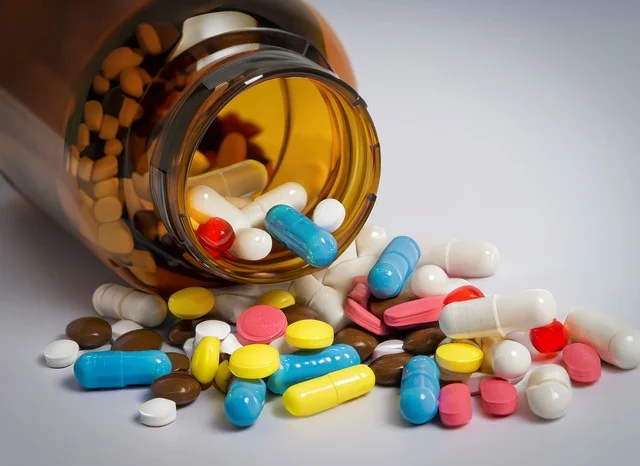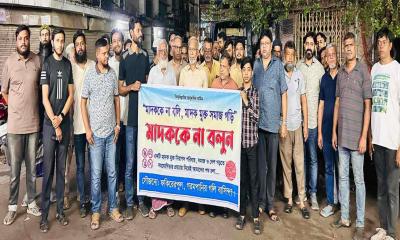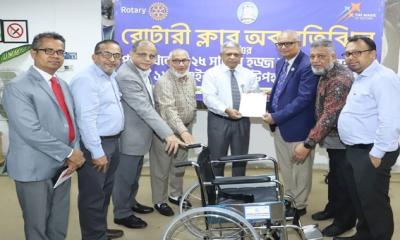- A market full of substandard drugs
- Low priced short-termed raw materials in production
- Fake insulin in market with other fake drugs
An oncologist at a private hospital in the capital's Dhanmondi prescribes 4 drugs in the prescription of a patient suffering from breast cancer. One of these drugs is also manufactured in the country, while drugs from a foreign company are also smuggled into the country. The doctor advised patient’s relatives to buy the foreign medicine if possible. When the patient's relatives asked the doctor why, the doctor said the quality of the native medicine is not good. The patient's relatives got confused. Even though it is hard, they buy foreign medicines at a higher price, excluding the domestic ones.
'Ciprofloxacin' is a very popular and widely used antibiotic. Doctors recommend its use in many types of infections. Most of the drug manufacturing companies in the country manufacture and market different categories of generic drugs. Some make tablets, some capsules or syrup. Taking advantage of the demand for the drug, some companies release it in the market. The Department of Drug Administration identified ‘Ciproquin 500mg’ generic drug produced and marketed by Marksman Pharmaceutical Limited as a low quality drug and issued an order to withdraw it from the market and ban its production on January 1. Before that, samples of the drug are collected and tested in the laboratory
Earlier on January 2, Globe Pharmaceuticals' desloratadine generic Deslona tablet was ordered to be withdrawn from the market after it was found to be a similarly substandard drug. It was manufactured in September 2022 and has an expiry date of September this year, which is used to relieve fever and allergy related problems. The Department of Medicines Administration canceled the registration of this drug as well.
Fake insulin for diabetic patients is also available in the market of the country. That too is in the name of Denmark-based pharmaceutical company ‘Novo Nordics’. 'Ozympic' 1 mg dose of insulin was seized and banned from the market. There was a note on the packet that medicine was packed in Egypt. On the same day, a counterfeit eye drop called Xylorphin was banned, which was found to be fake. The original manufacturer of this drug is Apex Pharma Limited.
The Department of Drug Administration of the government occasionally seizes or bans some low-quality and fake or adulterated drugs under supervision, but according to experts, there are hundreds of low-quality, fake, adulterated drugs in the market, with which people are being cheated. They are facing great loss physically. Special circles of drug importers are blamed for manufacturing and marketing such low-quality, fake and adulterated drugs in the country. It is known from the related sources that some drug manufacturing companies and raw material sellers are in cahoots with them. Especially in Mitford area of the capital, big sales are done through this cycle year after year. Sometimes the law and order forces raided there, but after a few days it returned to the same level. Even three years ago, during such an operation, the members of law and order forces were surrounded.
Dr. Muniruddin Ahmad, Former professor of clinical pharmacy and pharmacology department of Dhaka University, said newspaper that the situation is very awkward in the pharmaceutical sector. Medicines are being made here in two ways. Medicines for foreign export are manufactured following international standards. But the drugs in the country's market means there is no strict monitoring system, which is very sad. Medicines can never be of two kinds.
The expert said the drug administration seizes and bans drugs when it conducts raids. But who will take responsibility for the drug that was on the market before! What happens to those who have taken medicine and suffered? If someone is dead, who will see it?
Speaking to the responsible officer of several drug manufacturing companies, it is learned that some drug manufacturing companies have obtained licenses from the government in any way or another to manufacture and to sell some nominal drugs. It’s their core business by using government quotas, finding short-term, low-cost raw materials from abroad, bringing them home and selling them to others with huge profit.
Officials said there was a need to better track where the drug paraphernalia was sourced at the rate openly sold in hundreds of shops in Mitford. It is not possible for retailers in Mitford to import such good quality of raw materials or procure them even from legitimate importers. It is also important to see who the buyers are of these raw materials. Because no good quality company buy raw material from Mitford and useit to make medicine. All the good companies bring raw materials from outside with the permission of the government.
The general manager of another company said before joining the running company, he was an officer in the company whose job was it to find out where and when auctions of raw materials of medicines were called outside the country. In this case, it was found out where it is available at the lowest price according to international market rates. Along with that, more attention was paid to the raw materials that have a short term.
The official said as an example, if the price of the raw material with a one-year term is Tk 50,000 and if the term is two months, the price of the commodity drops to Tk10, 000 which is sold in a kind of auction. The workers employed by a class of companies in our country bring these raw materials into the country and release them in the market. Those who buy these raw materials and make medicines, mention a long time on the medicine packet.
The number of allopathic drug manufacturing establishments listed by the Department of Drug Administration of the Ministry of Health and Family Welfare is 304. Out of this, the license of 62 institutions has been canceled due to various reasons. More than 100 companies' licenses have expired at various times. Apart from this, the production of 6 institutions has been suspended. The owners themselves have kept the 4 institutions unworkable. About 30,000 brand name drugs are now spread in the market against about 1,500 generics of these companies.
Md Salahuddin Ahmed, director of the Department of Drug Administration, said compared to how big our drug sector is now, there is no manpower required for adequate monitoring. This is our big crisis. However, we are trying our best to control substandard, fake, adulterated and stolen medicines.
The official said a handful of unscrupulous traders might be secretly selling low-quality raw materials in the black market. We also have monitoring that. Our team conducted the operation with the help of law enforcement agencies. By prosecution, jail-fine is also imposed on illegal action and businessman.






